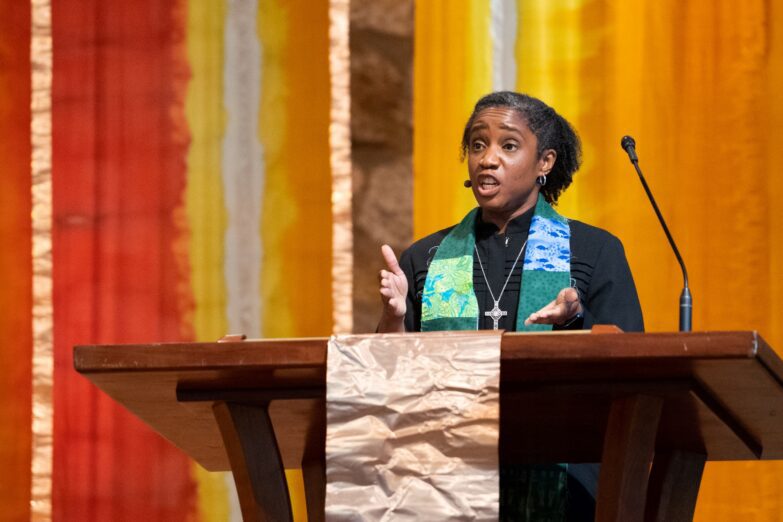The following extended commentary was originally included as part of President Richard DuBose’s article “Are There Boundaries for Politics in the Pulpit?” which was published on July 4, 2025. We invite you to read the full article here before continuing.
Strawman Arguments from the “Unity Perspective” and the “Prophetic Perspective”
To compile the perspectives below, I fed a document that included my notes and some old emails from community members through an AI engine. Here’s the output, augmented by my own voice and edited for brevity.
The Unity Perspective: A Christian pastor’s first priority is to proclaim the gospel of Jesus Christ, a message that precedes and transcends political categories and stances. A sermon should be preached to offer guidance to all rather than to focus on a particular segment of society. By contrast, political preaching endorses one side of a political debate and may alienate members of the congregation, making them feel unwelcome or judged, or triggering emotions brought on by ugly arguments in other settings. When preachers engage with politics too directly from the pulpit, they braid together theological authority with political ideology and muddy the line between discipleship and partisanship.
Ironically, avoiding the appearance of partisanship can actually strengthen the ability to speak prophetically, positioning the preacher more effectively to challenge injustice, advocate for the poor, and call people to repentance from any quarter. Jesus engaged with moral and social issues but challenged religious and political authorities by redefining power and justice through servanthood, sacrifice, and love. Finally, we live in a polarized society, and church is one of the few places where people of different political beliefs can come together. Worship that promotes peace and unity fosters the kind of community that God calls us into being rather than toward the divisions that plague us.
The Prophetic Perspective: Because it speaks to every dimension of human life, the gospel necessarily addresses our social, economic, and political lives. The whole of Scripture is oriented toward reminding the community that “God’s eye is on the sparrow” and the community’s calling is to seek justice for the whole of God’s creation. The prophetic tradition demonstrates that God’s Word often confronts rulers and systems when they oppress or exploit, and Jesus in particular is quite clear in calling Christians to seek justice, defend the oppressed, care for the poor, and proclaim the truth.
The good news of the gospel precedes and transcends the political. When moral imperatives bear directly on political issues, silence is unacceptable, as silence implies indifference or complicity. As Dietrich Bonhoeffer warned, “Not to speak is to speak. Not to act is to act.” The choice to avoid political issues is its own political statement.
We must continually be reminded of God’s power to transform lives, our community, and society through our own words and actions. Skillful preaching describes, identifies, and enlightens how biblical truth intersects with public life, not to advance a partisan agenda but to form consciences and cultivate courageous discipleship. Blessings are entrusted by God to used, not hoarded, and to do so is to participate in God’s work of restoring creation.
With gratitude,

Richard DuBose
President, Montreat Conference Center

